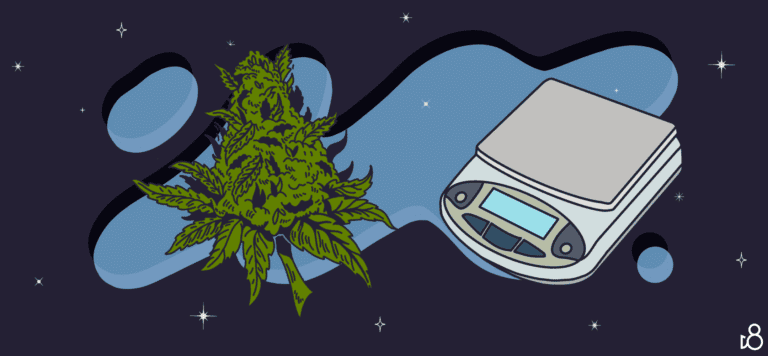Is Delta 11 Legal in Alabama? State Law Clarification
Curious about where delta-11 THC stands with Alabama laws? The chatter about hemp and all its cousins seems to shift like quicksilver, making it super interesting to realize THC isn’t flying solo. It’s part of a squad of trippy ingredients, with the famous delta-9 THC often stealing the spotlight. But hold onto your hats, because delta-11 THC, fresh from the hemp team, is stepping up to the plate.
Table of contents
In Alabama, your curiosity about the legality of such cannabinoids is warranted, considering the complex nature of cannabis laws. It’s crucial to distinguish between the types of THC, as the legality often hinges on the specific compound in question and its concentration in the product. While hemp-derived products with less than 0.3% delta-9 THC are federally legal, the nuances of state law can dictate a different legal status for delta-11 and other hemp-derived cannabinoids.
With respect to delta-11 THC, it’s essential to approach this topic with the current understanding that legal statutes are subject to change, especially as new research and regulations emerge. In Alabama, like many states, the legal framework is adapting to address these compounds’ psychoactive properties and the hemp industry’s growth. By staying informed, you can navigate the landscape of cannabinoids, including delta-11 THC, in Alabama with confidence and clarity.
Legality of Delta 11 in Alabama
When discussing Delta 11, you should be aware of the intricate balance between state and federal law, and how recent legislative changes might impact its legal status in Alabama.
State Law and Federal Interaction
Understand that the legality of Delta 11 in Alabama hinges on an interplay between state and federal laws. Delta 11, like other THC isomers, falls into a complex legal category due to the 2018 Farm Bill, which federally legalized hemp and its derivatives with a THC concentration of not more than 0.3% on a dry weight basis. This has prompted states to interpret and regulate THC isomers differently. You need to take into account that Alabama state law may not align perfectly with federal legislation, such as the Controlled Substances Act, which does impact the legal nuances surrounding Delta 11.
Current Legal Status in Alabama
As of the current date, you must be attentive to the fact that Alabama state law has not explicitly legalized Delta 11. While the 2018 Farm Bill has influenced regulations concerning hemp and its derivatives, the Alabama state legislature and regulatory agencies may have different legal frameworks for substances derived from hemp, like Delta 11. Always check the most recent legislation and legal advice to confirm the up-to-date status of Delta 11 and related regulations in Alabama, as state laws evolve and administrative rules can further define legality.
Overview of Delta 11 THC
In the realm of cannabinoids, Delta 11 THC is a compound that has sparked conversations about legal status and effects, especially in states like Alabama. Understanding its chemical profile and how it compares to other THC isomers is essential.
Chemical Profile of Delta 11
Delta 11 THC, chemically known as 11-hydroxy-delta-9-tetrahydrocannabinol, is a metabolite of Delta 9 THC, the primary psychoactive component of cannabis. When you consume Delta 9 THC, your liver metabolizes it into Delta 11 THC, which is considered more potent due to its easier crossing of the blood-brain barrier.
Molecular Structure:
- Formula: C₂₁H₃₀O₂
- Delta 9 THC metabolite
Comparison With Other THC Isomers
Delta 11 THC is one of many THC isomers, notably including Delta-8 and Delta-9 THC. Compared to Delta 9 THC, Delta 11 is known for a more intense psychotropic potency, though research is ongoing. Delta 8 THC is less potent than both Delta 9 and Delta 11 and is renowned for its milder effects and legal ambiguity related to its hemp-derived status.
- Potency:
- Delta 9: High
- Delta 8: Moderate to Low
- Delta 11: Highest
- Legal Status: (varies by state)
- Delta 9: Controlled Substances Act regulated
- Delta 8: Hemp-derivatives potentially legal
- Delta 11: Legal status may mirror Delta 9 due to psychoactivity
Understanding Delta 11’s characteristics alongside other cannabinoids will help you navigate the complex legal landscape that governs their use and distribution.
Hemp and THC Regulation
The landscape of hemp and THC regulation is shaped by federal laws and oversight by the DEA and FDA. Understanding how these regulations affect hemp products, including hemp-derived THC compounds, is essential for compliance and legality.
2018 Farm Bill Provisions
The 2018 Farm Bill federally legalized hemp by changing its federal definition in the United States. Under this Bill, hemp is classified as the Cannabis sativa L. plant and any part of the plant, with a delta-9 tetrahydrocannabinol (THC) concentration of no more than 0.3% on a dry weight basis. Hemp-derived products meeting this THC threshold are considered federally legal, removing them from the Controlled Substances Act. This pivotal change paved the way for states to regulate hemp production, with individual states such as Alabama determining their stance on hemp-derived THC compounds.
DEA and FDA Oversight
The Drug Enforcement Administration (DEA) alongside the Food and Drug Administration (FDA) exerts federal oversight over drugs and substances, including those derived from the hemp plant. The DEA scrutinizes controlled substance schedules, examining hemp-derived compounds for potential abuse or diversion. The FDA regulates hemp products labelled as dietary supplements or for therapeutic claims, ensuring consumer safety. Hemp-derived THC, such as delta-8 or delta-10, enters a grey area, where its legality hinges on intricate interpretations of federal regulations and chemical structures. Therefore, you should remain aware that the FDA has yet to formally recognize any hemp-derived THC compound as a safe and approved substance in food, drugs, or cosmetics.
Legal Implications for Consumers
When you purchase or possess cannabis products in Alabama, the legal landscape can be complex. It’s important for you to understand how the law differentiates between different types of products, such as edibles, flowers, and vapes, and the potential consequences you might face.
Cannabis Products and Retail
In Alabama, the legality of cannabis-related products hinges closely on their tetrahydrocannabinol (THC) content. As a consumer, you should be aware that products like edibles, gummies, and vapes containing delta-8-THC are in a gray area; however, delta-9-THC (commonly found in marijuana flower) remains illegal under state law. The emerging market for hemp-derived substances, such as delta-8, presents an ambiguity because, while technically legal under federal law, state law may differ. For example, purchasing hemp-derived cannabinoids can expose you to legal risks depending on local enforcement.
Implications of Possession and Use
You should be cautious regarding the possession and use of THC-containing products. Possession of marijuana flower and products with delta-9-THC is illegal and can lead to arrest and prosecution. On the other hand, cannabis vapes and edibles may also attract legal consequences if they contain delta-9-THC. However, local enforcement policies can vary, and possession of hemp-based products like CBD gummies is generally permitted. Here’s a brief overview of the legal status for possession in Alabama:
Being discreet in your use of hemp-derived products like CBD gummies or vapes may also be advisable, as the nuances of legality can sometimes be misunderstood by the public and law enforcement alike. Always verify the content of your cannabis products and stay informed on the latest state legislation to minimize your legal risks.
Legal Considerations for Producers
When engaging in the production of hemp-derived cannabinoids such as delta-11 in Alabama, you must adhere to specific regulations. These include compliance with state laws on manufacturing, quality assurance protocols, and the attainment of necessary licensing. Understanding these rules will help ensure that your operations remain within legal boundaries.
Manufacturing and Distribution Regulations
In Alabama, your production of delta-11 must align with the state’s controlled substance regulations. As a producer, it’s your responsibility to stay updated with the Alabama Uniform Controlled Substances Act, as amendments can impact the legality of cannabinoid production. Ensure that your manufacturing processes don’t lead to any substance inadvertently falling into a more restrictive category.
Testing and Quality Assurance
You need to implement strict testing and quality assurance measures. Products must be tested for potency and purity, and should be free of harmful contaminants. Providing consistent and safe products is not only a legal requirement but also crucial for consumer trust.
Licensing Requirements
Before producing hemp-derived cannabinoids like delta-11, you have to obtain the necessary licenses. Alabama’s state laws require you to have a Hemp Processor License from the Alabama Department of Agriculture and Industries. Keep in mind that operating without a license can result in being classified as dealing with a controlled substance, leading to severe penalties.
Delta 11 Legality in Other States
In the United States, the legality of Delta 11 varies greatly, with some states having explicit laws and others operating in legal gray areas.
States Where Delta 11 is Legal or Restricted
Legal:
- Oregon: You can access Delta 11 legally.
- California: No current restrictions on Delta 11.
Legal with Restrictions:
- Alaska: Legal, but with strict regulations.
- Colorado: Delta 11 is legal, although the state closely monitors THC analogues.
Restricted/Legal Gray Area:
- Wisconsin: Ambiguous laws; proceed with caution.
- Pennsylvania: Delta 11 availability is legally uncertain.
State-Specific Legal Nuances
Alaska: While legal, your Delta 11 products need to adhere to state regulations, including labeling and testing requirements.
Colorado: Know that while Delta 11 is legal here, Colorado has specific licensing requirements for distributors.
Wisconsin: Although there is no explicit legislation against Delta 11, it’s recommended to stay informed about potential changes due to the state’s complex legal landscape regarding hemp derivatives.
Pennsylvania: Delta 11’s legality is currently not clearly defined, making it imperative to stay updated on local statutes.
Remember, the legal landscape surrounding Delta 11 and other tetrahydrocannabinol compounds like Delta 10 is continuously evolving, so it’s crucial for you to consult local laws before purchasing or possessing these substances.
Health and Safety Considerations
When considering the legal status of delta-11 or any cannabis-derived compound in Alabama, it’s crucial for you to understand the health and safety implications. This section outlines the psychoactive effects and the importance of drug testing, as well as the potential risks associated with usage and the necessary consumer advice.
Psychoactive Effects and Drug Testing
Delta-11, like delta-9 THC found in marijuana, is a psychoactive compound that can induce a high. If you’re subjected to a drug test, even legal cannabinoids from the cannabis plant could result in a positive test due to their similarity to THC. It’s important to consider that consuming products containing delta-11 could impact your health, job, and legal standing.
Potential Risks and Consumer Advice
The long-term health effects of delta-11 are not fully known. However, it’s advised to exercise caution due to its psychoactive nature. When purchasing products, ensure they’re from reputable sources and clearly labeled to reflect their content accurately. Always consult healthcare professionals before trying new substances, particularly if you have preexisting health conditions or are taking other medications.
Scientific and Legal Developments
Understanding the standing of Delta-11 THC in Alabama necessitates a look at both recent scientific discoveries regarding cannabinoids and the evolving legal landscape governing these substances.
Advances in Cannabinoid Research
Your awareness of Delta-11 THC’s legality is greatly informed by the progression in cannabinoid research. Scientists are continuously uncovering new information about the synthesis and effects of various cannabinoids, including THC and its isomers. Delta-11 THC is one of many tetrahydrocannabinols that have been isolated and studied for its unique properties. It is essential to note that the scientific scrutiny of its effects and potential uses is still ongoing.
- Isomer Analysis: Researchers are distinguishing between the pharmacological effects of THC isomers.
- Synthesis: Better understanding of THC synthesis fosters discussions about efficacy, safety, and regulation.
Pending Legislation and Judicial Decisions
You must take into account the fact that the legal status of certain cannabinoids is subject to change. In Alabama, pending legislation and judicial decisions can significantly impact the legal framework surrounding Delta-11 THC and related substances.
- Legal Status: Check for the most recent updates on state laws, as they can define the legality of possessing, using, or selling Delta-11 THC.
- Judicial Interpretations: Court decisions may set precedents that affect how laws about cannabinoids are enforced.
When it comes to legal advice on the matter, it’s crucial you consult with a legal expert, because the landscape is complex and frequently changing.
Frequently Asked Questions
Understanding the legality and implications of Delta variants such as Delta 11 in Alabama is crucial if you’re considering their use. This section aims to clarify your pressing inquiries.
What are the legal statuses of Delta variants in Alabama?
Delta variants, including Delta 11, fall into a gray area in Alabama law. While not explicitly mentioned, compounds structurally similar to Delta 9 THC may be regulated under state law.
Can Delta 11 cause psychoactive effects?
Similar to its analog Delta 9, Delta 11 is a cannabinoid and can induce psychoactive effects, though the intensity and experience may vary from person to person.
Are there any safety concerns associated with the use of Delta 11?
As with any cannabinoid product, there may be safety considerations. Proper sourcing and verification of safety standards are advisable when using Delta 11.
How does Delta 11 compare to Delta 9 in terms of strength and effects?
Delta 11 is chemically related to Delta 9 THC and is presumed to have similar psychoactive properties. However, there might be variations in its strength and effects due to its different molecular structure.
Will the use of Delta 11 be detected on a standard drug test?
Delta 11 could potentially show up on drug screenings as it is a THC variant. Tests often look for metabolites common to THC compounds.
Where can I find Delta 11 products in close proximity?
Finding Delta 11 products in your area will depend on local availability and state regulations. Specialty health stores, dispensaries, or online vendors might stock these items in Alabama.






